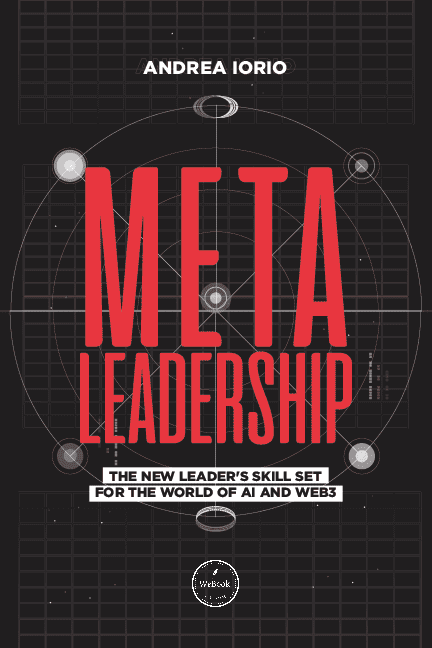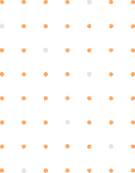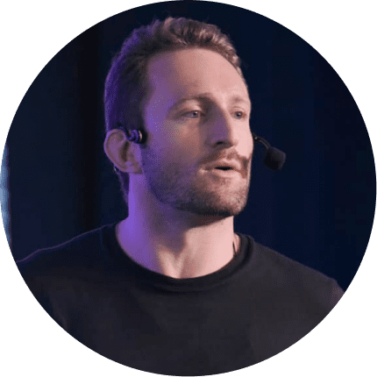2022 was an extremely challenging year for me. I moved to another country, migrating to the United States, but continued giving in-person lectures in Brazil. I went back and forth about 16-17 times, speaking at 157 events by the end of the year. It was mentally and physically exhausting. But I was driven by purpose, and that's why I kept going. And you know what brought me at least some comfort amid all that discomfort? The philosophy of Stoicism, which, as we'll see in this article, values the power of discomfort as an environment for learning and improvement. I was reading Seneca, Epictetus, and many others, and over time, I realized that Stoicism could be the best philosophy to deal with the rapidly changing world of Artificial Intelligence. Across the article, we'll understand the importance of maintaining a "stoic" attitude towards the changes that the world of Artificial Intelligence brings, starting with a quote from Ryan Holiday, the founder of the Daily Stoic YouTube channel, and one of the greatest authors and speakers on Stoicism.
Check it out:
Here’s the quote: "The whole thing boils down to an idea: there's some stuff that is up to us, and some stuff that is not up to us. Epictetus says that our chief task in life is to decide whether that is up to me or not up to me, and this seems really basic, but the truth is that most of us, most people spend most of their time on stuff that is not up to them, right? You complain about stuff, you wish stuff that was otherwise, we spend time worrying about the future, or regretting the past, and none of that is energy spent towards what we actually control, which is right now, what's right in front of us."
Let's look at the profound revolution that AI is bringing: the world is not ready for what is coming... but it will come anyway. This could be said about countless transitions in human history, but advances in artificial intelligence will soon usher in the most exciting and opportunity-rich era humanity has ever seen. The rewards will be available to all, but they will only be reaped by those of us who can accept inevitable changes and embrace things that are beyond our control. Unfortunately, for a significant percentage of the population – those who refuse to adapt, learn new things, or reinvent themselves – the coming years may be frustrating, confusing, and even frightening. But this is where Stoicism, as a philosophy, can help us navigate through these years and adapt in the best possible way. Let's remember what Stoicism is all about, drawing on the learnings from episode 77 of my podcast, Metanoia Lab about Ryan Holiday, one of my favorite authors. Stoicism is a school and philosophical doctrine that originated in ancient Greece, valuing fidelity to knowledge and a focus on everything that can be controlled solely by the individual, disregarding all kinds of external emotions such as passion and extreme desires. The Stoic school was founded by Zeno of Citium in the city of Athens around 300 BC, but the doctrine became effectively known when it reached Rome. Its central theme argued that the entire universe would be governed by a divine and rational natural law. Thus, to achieve true happiness, human beings should depend only on their "virtues," that is, their knowledge and values, completely abstaining from "vice," which the Stoics considered an absolute evil. Stoicism also teaches to maintain a calm and rational mind, regardless of what happens. It teaches that doing so helps a person recognize and focus on what they can control and not worry or accept what they cannot control. The principles of Stoic philosophy, guiding the followers of the doctrine, are:
- Virtue is the only good and path to happiness.
- A person should always prioritize knowledge and act with reason.
- Pleasure is an enemy of the wise man.
- The universe is governed by a universal, natural, and divine reason.
- Actions have more value than words, meaning what is done is more important than what is said.
- External emotions make a man irrational and biased.
- One should not ask why something happened in their life but accept it without complaint, focusing only on what can be modified and controlled in that situation.
- Act wisely and take responsibility for one's actions.
- Everything around us happens according to a law of cause and effect.
- Life and circumstances are not idealized. The individual needs to live with and accept their life as it is.
From these principles, it is possible to understand that a Stoic person is one who does not let themselves be carried away by beliefs, passions, and feelings that can take away a person's rationality when acting, such as desires, pain, fear, and pleasure. This is because these circumstances are unfounded and irrational.
The four main Stoic philosophers were Zeno of Citium, the Emperor Marcus Aurelius, Epictetus, and Seneca, the latter being one of the greatest philosophers in the history of ancient Rome. After his death, Seneca influenced notable figures like Erasmus of Rotterdam, Francis Bacon, Pascal, Montaigne, and even modern-day thinkers, as there has been a renewed interest in him. Two notable examples include best-selling author and economist Nassim Taleb, who dedicated an entire chapter to Seneca in his latest book, and writer and entrepreneur Tim Ferriss, who published an audiobook on Seneca and frequently mentions Seneca on his popular blog.
And when we consider the context of the world of Artificial Intelligence, Stoicism is a powerful resource. The AI revolution is supposed to be great for humanity, enabling us to be healthier, happier, and more fulfilled than ever. But initially, when people realize that AI will make their professions obsolete and their skills common, we will have a challenging period of adjustment. First to fall will be artists and writers, like me. In the very near future, AI might be able to write an article like the one I'm writing now... but it will write it much faster and much better. Soon after that, other professionals who thought their jobs could never be replaced by AI will also become nervous. Lawyers will witness AI doing a better job in studying decrees and presenting legal arguments. Doctors will see AI doing a better job analyzing a patient's health and prescribing preventive treatments. Salespeople will see AI doing a better job answering phone calls and emails. AI will develop more effective medications, discover cures for diseases, create stronger building materials, and invent new machines that make life and learning easier for all of us. The rise of artificial intelligence does not mean Armageddon for humanity and will not condemn anyone to poverty, unless they choose to be condemned. But those who define themselves by their careers (yes, even you) may find the next years stressful. That's why now is the perfect time to learn that our happiness is not controlled by external things, such as jobs and technology... and that we can always find joy in our talents, regardless of whether we are the best at them. Though developed thousands of years ago, Stoicism may be the perfect philosophy for a society on the brink of a technological revolution. Remember: the world around us can change dramatically and exponentially, but humans – and human nature – remain quite similar and change, if at all, in a linear way. Accepting things beyond our control, choosing to be happy regardless of external circumstances, and turning obstacles into opportunities are fundamental principles of Stoic thinking.
Here are some tips to help you out:
- Don't worry about things you cannot change. When AI integration becomes more noticeable, many people will become upset and try to stop it. They will protest, boycott, and even attempt to ban artificial intelligence. They will fail, just as the Luddites failed in their attempts to stop textile automation in the 19th century. But some people will continue to be angry at AI for the rest of their lives.
Don't be one of those people. Technological progress is not something you can change, so don't waste time worrying or getting angry about it. Instead, accept that it will happen and focus on being happy and productive in new and inevitable environments.
- Turn obstacles into opportunities. It may be tempting to view artificial intelligence as an obstacle to your happiness – especially if it threatens to render your job obsolete. But don't let that blind you to the countless opportunities that AI will create for people to make a living in new and exciting ways. Instead of complaining about AI, start learning about it, have fun with it, and find ways to use it. Discover how it can amplify your natural talents and help you create things that were impossible when you started your career. It's natural to feel some apprehension – and even a bit of fear – about things you're not familiar with. Don't let that stop you from remaining flexible, reinventing yourself, and embracing the new opportunities that AI will bring.
- Seek joy and purpose within yourself, not in external things. No matter how much AI advances, it cannot take away your talents, passions, experiences, and choices. You can still find joy in creating and nurturing the things you love, regardless of whether machines can do the same things faster and with fewer mistakes. If your personal identity is tied to your career, start envisioning how you can find purpose by doing something different. Your worth is not defined by your work, and feeling happy is better than feeling important.
- Resolve to have fun and practice gratitude. It is not the change that bothers us, but our judgments about the change (that's from Epictetus, by the way). Happiness is truly something we choose, and AI will enable many new enjoyable experiences. You could enjoy it... if you allow yourself to. Allow some gratitude in your thoughts as well, for being alive in such an incredible moment in human history. We have the opportunity to learn more, live healthier lives, and experience things our ancestors could never have imagined.
I want you to reflect on this as homework and tell me about it later. Feel free to contact me at @aiorio_br









